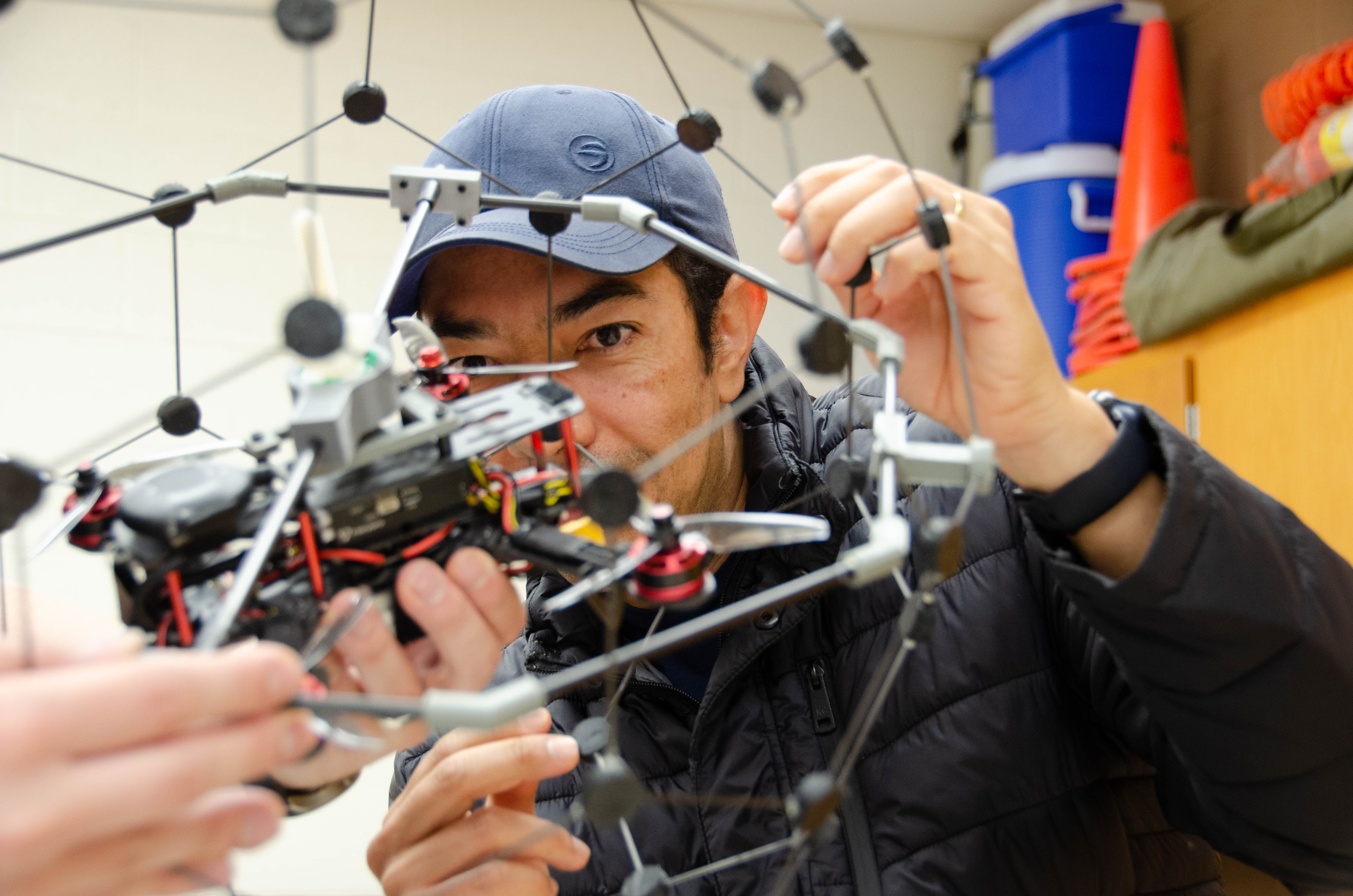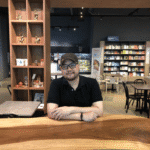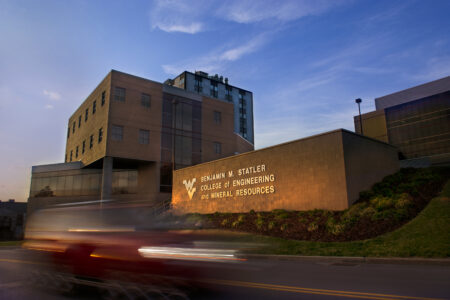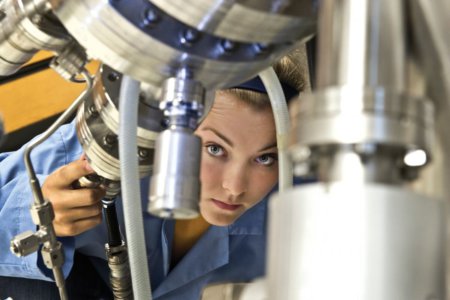In an era where technological breakthroughs are at the forefront of global progress, West Virginia University (WVU) is working hard to advance high-impact research and leading transformation in West Virginia and the world. In 2023, it became one of just more than 80 higher education institutions to receive the Innovation and Economic Prosperity University distinction from APLU, a research, policy and advocacy organization advancing the work of public universities in North America.
The Department of Mechanical, Materials and Aerospace Engineering is a key part of this success. Research here is prolific, with millions in funding from all major government funding agencies, from NASA to the National Science Foundation. World-class faculty members here focus on alternative energy solutions using innovative materials, creating robots for plant pollination, researching energy-efficient hybrids, or creating alternative fuel solutions for jet engines.
Bernardo Martinez Rocamora Junior chose to pursue a PhD in Aerospace Engineering (with a focus on robotics) at this department for this very reason. “In Robotics, it is really important to have access to modern equipment and facilities. Here, I had access to research labs and classes equipped with robots — such as drones, robotic manipulators, autonomous ground vehicles, quadrupeds — and sensors such as cameras, lidars, GPS antennas, IMUs, etc,” he says.
Rocamora’s WVU experience was well-rounded. When he wasn’t preparing to seize opportunities in industry, government agencies, or private companies, he was enjoying all Morgantown, one of the “South’s Best Small Towns,” had to offer. “Academically, I was able to enjoy great courses, work in research labs, become friends with other graduate students, find a community of other South American students, participate in competitions, etc,” he says. “I could experience a bit of the Appalachian culture and explore the many outdoor recreational opportunities that West Virginia can offer.”
Morgantown has long welcomed students from far and near. Though it has a small-town feel, there are many amenities. The cost of living is affordable despite its closeness to major East Coast metropolitan areas. Livability named it one of the “Best Affordable Places to Live,” and it is the 28th community in the US to earn a “Safe Communities” accreditation.

The Department of Mechanical, Materials and Aerospace Engineering offers practical research opportunities that give students a competitive edge. Source: West Virginia University
Engineering excellence and innovation
Aspiring engineers, researchers, and computer scientists can trust that they’re in good hands at WVU, recognized as an R1 (very high research activity) institution by the Carnegie Classification of Institutions of Higher Education. The department alone has a research program with annual expenditures of more than US$14 million, shattering research expenditures record for second consecutive year and supporting about 100 graduate students.
The department’s dedication to economic development and societal well-being is evident in its academic programs. Through its six graduate programs across mechanical, materials science, and aerospace engineering, graduates become well-rounded professionals ready to excel in various career paths. And, with an 88% career placement rate, Statler College of Engineering and Mineral Resources ensures that its students are prepared to enter the workforce with confidence.

Statler College’s hands-on learning and advanced facilities make it the ideal place for international students like Havva Eda Aysal to develop their skills. Source: West Virginia University
Develop in-demand engineering skills
The department equips students with both technical prowess and essential soft skills tailored for success in academic or industrial careers.
“My best experience at Statler College has been participating in cutting-edge research projects that have challenged and expanded my knowledge,” says Havva Eda Aysal, a PhD in Materials Science and Engineering student. “One particular highlight was contributing to a collaborative research project focused on developing innovative materials for biomedical applications. This hands-on experience not only deepened my understanding of the subject but also allowed me to see the real-world impact of our work.”
The department’s holistic approach has yielded many achievements. For instance, a group of MMAE researchers collaborated with the California Air Resources Board to uncover the globally publicized Volkswagen emissions discrepancy that led to the discovery of a “defeat device” installed in certain Volkswagen automobiles.
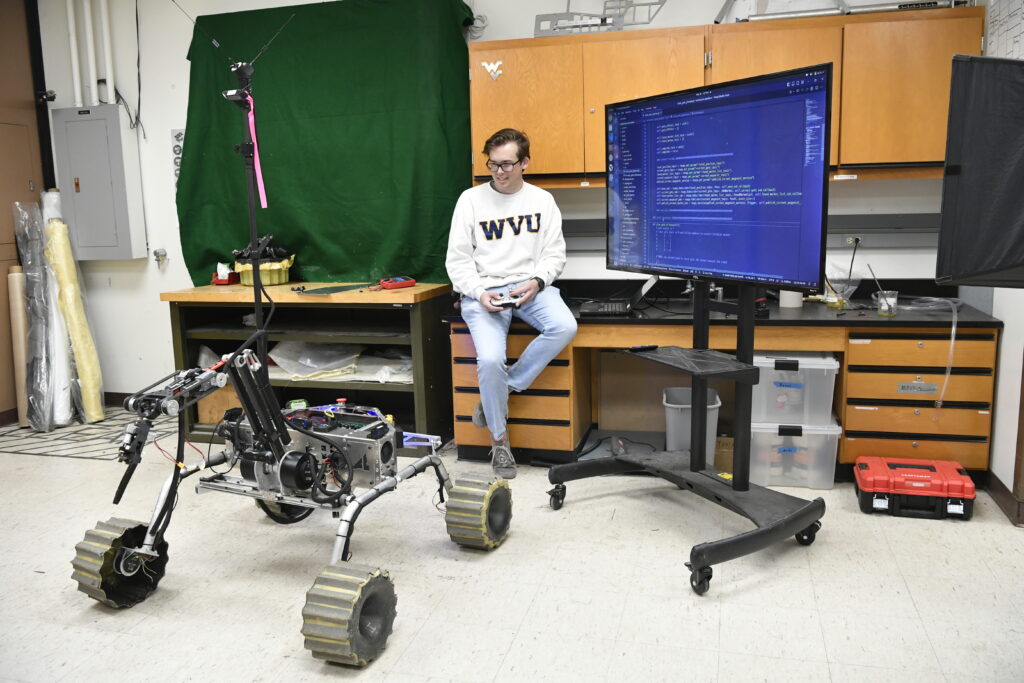
Team Mountaineers from WVU took first place in the 2023 University Rover Challenge, beating out over 100 other teams from 15 countries. Source: West Virginia University
Rocamora and his team placed sixth out of 114 teams in the NASA Space Robotics Challenge Phase II. He took part in this Centennial Challenge during his first year, working with faculty and other students to develop software to coordinate a team of six robots to operate completely autonomously in a virtual lunar environment to extract resources and return them to a home base. To the Robotics Research Engineer at L5 Automation, Inc, it was his “best experience” at WVU.
“I participated in both rounds of the competition and served as a student leader for the second and final rounds of the challenge. The award ceremony took place in Houston, Texas, and we were awarded 6th place out of 114 teams that started the competition,” he says. “We also had the opportunity to meet other competitors, visit the Space Center Houston, and talk to astronaut Don Thomas.”
Follow the Statler College of Engineering and Mineral Resources on Facebook, X, Instagram, LinkedIn and YouTube.

